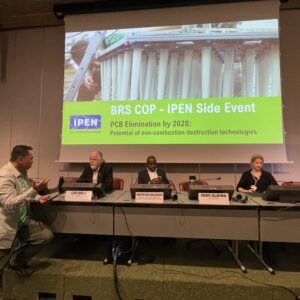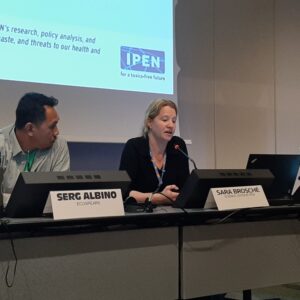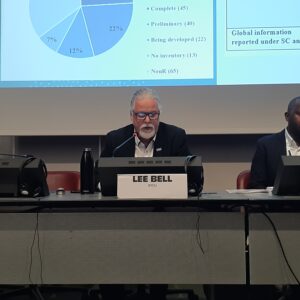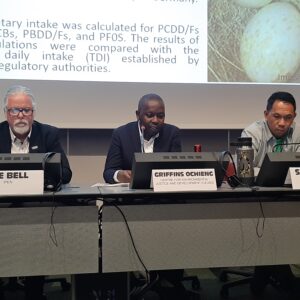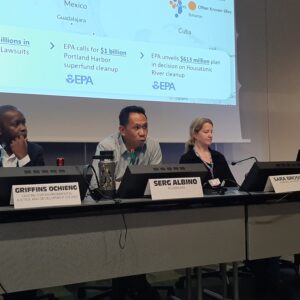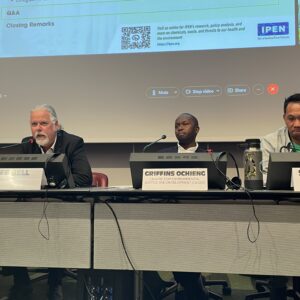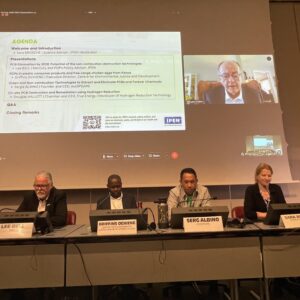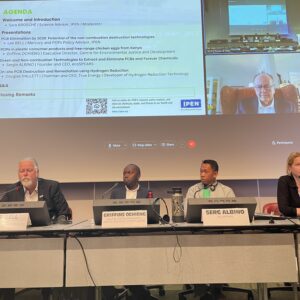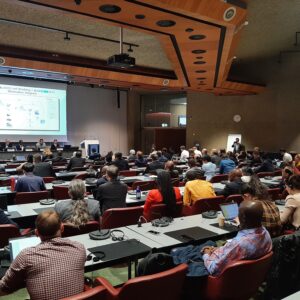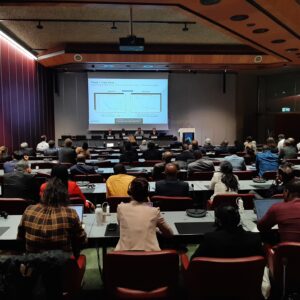Événement Conférence
PCB elimination by 2028: Potential of the non-combustion destruction technologies | BRS COPs 2023 Side Event
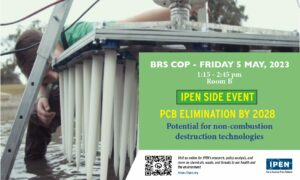
05 Mai 2023
13:15–14:45
Lieu: CICG | Room B & Online | Webex
Organisation: International Pollutants Elimination Network
This side event to the 2023 meetings of the Conferences of the Parties to the Basel, Rotterdam and Stockholm Conventions, organized by the International Pollutants Elimination Network (IPEN) with the support of the Geneva Environment Network, highlighted a range of non-combustion technologies that are commercially available for the destruction of PCBs and other POPs, which could allow to meet the 2028 deadline for PCB elimination.

About this Event
Polychlorinated biphenyls (PCB) are listed in Annex A to the Stockholm Convention. The production and new uses of PCB are banned, and Parties to the Stockholm Convention must eliminate the use of PCB in equipment by 2025 and to ensure the environmentally sound waste management of liquids containing PCB and equipment contaminated with PCB by 2028. This side-event presented a range of non-combustion technologies that are commercially available for the destruction of PCBs and other POPs. Benefits of this approach, such as the destruction of POPs without creating further UPOPs, modularity and transportable options for regional deployment and potential for full destruction of PCB stockpiles by the 2028 deadline, will be described.
Speakers
By order of intervention.
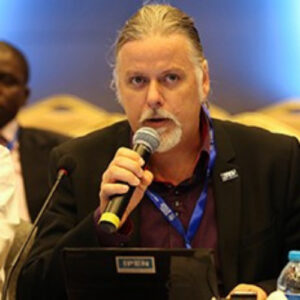
Lee BELL
Mercury and POPs Policy Advisor, IPEN

Griffins OCHIENG
Executive Director, Centre for Environmental Justice and Development

Sergie ALBINO
Founder and CEO, ecoSPEARS
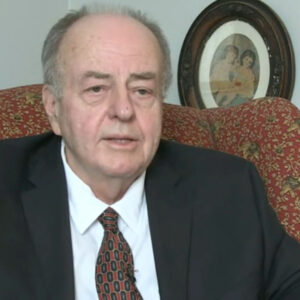
Douglas HALLETT
Chairman and CEO, True Energy | Developer of Hydrogen Reduction Technology

Sara BROSCHÉ
Science Advisor, IPEN | Moderator
Video
The event is livestreamed from CICG and via Webex.
Highlights
Photo Gallery
Documents
- Presentations made during the event
- Monitoring dioxins and PCBs in eggs as sensitive indicators for environmental pollution and global contaminated sites and recommendations for reducing and controlling releases and exposure | Jindrich Petrlik, Lee Bell et al. | 2022
- Non-Combustion Technology for POPs waste destruction: Replacing incineration with clean technology | IPEN | April 2021
- Hazardous Chemicals in Plastic Products and Food Chain in Kenya | CEJAD, IPEN, and Arnika | May 2023
Links
- BRS COPs | IPEN
- Douglas Hallett | PCB elimination by 2028 | BRS COPs 2023 Side Event | Video presented during the event
- Towards the 2023 Meetings of the Conference of the Parties to the Basel, Rotterdam and Stockholm Conventions
- IPEN Urges BRS COPs Delegates to Follow the Science, Ban Dangerous Chemicals Without Exemptions
- Quick views for the Conferences of the parties of the Stockholm, Basel and Rotterdam Conventions, 2023 | IPEN | April 2023

